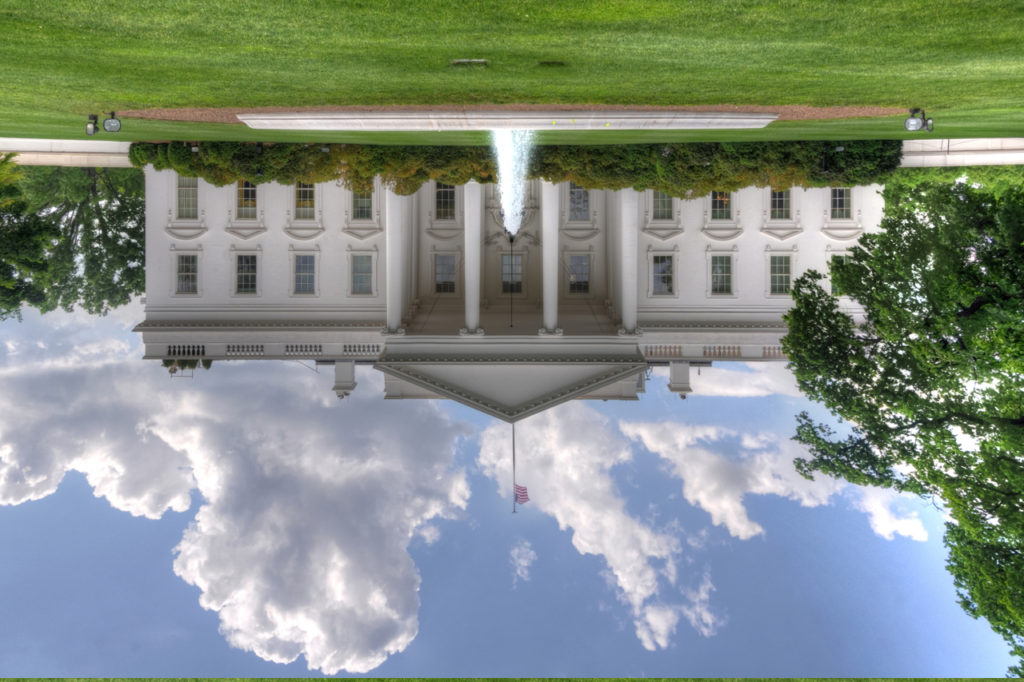
I do not fault stupid people for making the stupid decision to elect Donald Trump in 2016.
I do fault smart people for making stupid decisions. These include:
1. Senators who voted to acquit Donald Trump in his no-witnesses-allowed impeachment trial, including primarily Senate majority leader Mitch McConnell:
* Impeachment of Donald Trump (2020-02-05)
https://en.wikipedia.org/wiki/Impeachment_of_Donald_Trump#Acquittal
* Mitch McConnell (2020-02-05)
https://en.wikipedia.org/wiki/Mitch_McConnell#Impeachment_trial
2. Members of the GOP who voted to disenfranchise voters in Arizona, Georgia, Michigan, Nevada, Pennsylvania, and Wisconsin – before, during, and AFTER the 2021 storming of the United States Capitol – including Paul Gosar (AZ-04), Ted Cruz (R-TX), Jody Hice (R–GA-10), Mo Brooks (R–AL-05), Scott Perry (R–PA-10), Josh Hawley (R–MO), and Louie Gohmert (R–TX-01).
* 2021 Storming Of The United States Capitol (2021-01-06)
https://en.wikipedia.org/wiki/2021_storming_of_the_United_States_Capitol
* 2020 United States Presidential Election Electoral College Count (2021-01-06 – 2021-01-07)
https://en.wikipedia.org/wiki/2020_United_States_presidential_election_Electoral_College_count
3. Donald Trump’s cabinet, who could have invoked the 25th Amendment to remove POTUS at any time:
* Cabinet Of Donald Trump (2017-01-21 – PRESENT)
https://en.wikipedia.org/wiki/Cabinet_of_Donald_Trump
4. Social media, including especially Facebook and Twitter, for allowing their social networks to be used as platforms for hate speech.
* Donald Trump On Social Media (2017-01-21 – PRESENT)
https://en.wikipedia.org/wiki/Donald_Trump_on_social_media#2021
5. Mainstream media, including especially CNN (on the left) and Fox News (on the right) for not doing their jobs – asking questions until they get answers – and allowing POTUS to lie unchecked.
* Veracity Of Statements By Donald Trump (2017-01-21 – PRESENT)
https://en.wikipedia.org/wiki/Veracity_of_statements_by_Donald_Trump
6. Lawmakers at all levels, for failing to fix bad laws and for failing to enact good laws. Changes that must be made going forward include:
Limiting POTUS power:
- Executive order power must be limited.
- All cabinet members (acting/interim/actual) must be confirmed by Senate.
- Treaties and tariffs must be the role of Congress so that POTUS cannot engage in trade wars.
- War Powers Act must be updated to limit POTUS power to deploy the military.
- Special Counsel Act must be updated to make clear that POTUS cannot fire special counsel.
Writing better and new laws:
- Impeachment Act of 2021, to define how impeachment is conducted, including the requirement to have witnesses.
- Follow the lead of The Restatements Of The Law project (https://en.wikipedia.org/wiki/Restatements_of_the_Law) and codify major SCOTUS cases, including especially Roe v. Wade.
- Fix the Census.
- Fix immigration.
- Fix SCOTUS processes, such as limiting appointments to 2 per POTUS with the number of SCOTUS justices fixed at the number of Federal Circuits (currently 13).
- Election reform, including who is qualified to run for POTUS and that tax forms must be disclosed to do so.
Just to name a few.
Stupid people, bad laws, and lies got us into this mess.
Smart people, good laws, and the truth can get us out of this mess.
LAW >> MAN.
#FailedPols
https://www.failblog.com/

